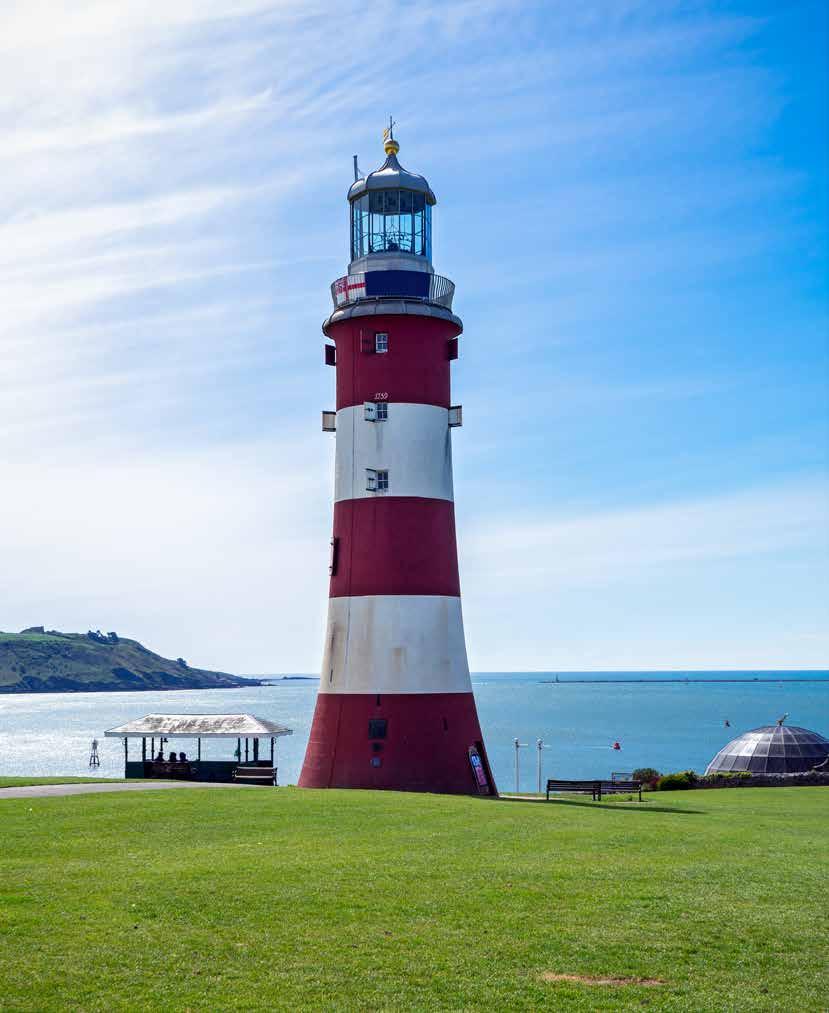








The strategic planning process to update the Strategic Plan for the period 2022-25, is outlined below.
The process involves as many stakeholders as possible to ensure that the strategic direction of the College over the coming years aligns with the numerous local and regional priorities.
Staff at all levels are significantly involved in developing the strategic direction for their college.
The Strategic Plan focuses on a three year planning period, however, the plan is revisited and amended each year in order to take into account changing Government priorities and funding methodologies.
The final plan is signed off by the Corporation at the July meeting.
(See timeline - Appendix 1)
Therefore, the overarching strategic monitoring of the organisation is:
Strategic Intent of the Organisation
The Group is made up of five core brands: Cornwall College, Duchy College, Falmouth Marine School, Bicton College and Cornwall College Business.
Cornwall College has two general further education campuses in Camborne and St Austell and a specialist marine campus in Newquay.
TCCG’s two specialist land-based partner colleges, Duchy College, Bicton College have three campuses, Duchy College Stoke Climsland, in north Cornwall and Duchy College Rosewarne near Camborne.
Falmouth Marine School specialises in marine engineering, watersports and boatbuilding.
We also have a dedicated Engineering Skills Centre in Plymouth, a Professional Skills and Golf Centre at St Mellion Resort and a training partnership with the world-famous Eden Project (Eden Project Learning).
We offer the widest range of specialist vocational training for everyone in Cornwall and beyond:
• Full-time study programmes for school leavers
• Apprenticeships
• Practical skills training
• Professional qualifications
• Adult, leisure and hobby courses
• Foundation and honours degrees
• Postgraduate study
• Business training division CCB Training
• Concorde Group recruitment and teaching bank
• University-level courses
DUCHY COLLEGE STOKE CLIMSLAND
CORNWALL COLLEGE NEWQUAY
CORNWALL COLLEGE CAMBORNE
DUCHY COLLEGE ROSEWARNE
FALMOUTH MARINE SCHOOL
EDEN PROJECT
CORNWALL COLLEGE ST AUSTELL
BICTON COLLEGE
PROFESSIONAL SKILLS AND GOLF CENTRE ST MELLION
ENGINEERING SKILLS CENTRE PLYMOUTH
The 2022–25 strategic planning period for the College, which is covered by this document, is more a positive one for the first time in many years for The Cornwall College Group (TCCG) based on four main factors:
• As a result of going through the Government’s ‘Fresh Start’ process the College has benefitted from strong and significantly improved Governance and Leadership.
• The recently released white paper, ‘Skills for Jobs: Lifelong learning for opportunity and growth’ has firmly put the Further Education sector at the heart of the Government’s ‘Levelling Up’ agenda and a key player in the economic recovery from both the Covid pandemic and the fuel crisis. There is now a genuine desire to understand and invest in improving the FE infrastructure however, the lack of increase in the base rate (revenue) is creating a significant workforce issue in the sector.
• The demographic data for school leavers in Cornwall over the next five years reports a predicted 28% growth across the two main general Further Education campuses, St Austell and Camborne.
• The College is now data rich which significantly enables effective decision making by Leaders and Governors
The geographic areas served by the Group are witnessing exciting developments in economic sectors which the College supports such as sustainable energy generation (off-shore wind), agriculture and food production, leisure and tourism and maritime and space technology which should generate significant additional demand for skilled employees.
TCCG has gone through a major culture and ethos change since the current Principal took up the post in October 2019. This coincided with the College receiving support and guidance from the DfE / ESFA as part of ‘Fresh Start’, including a £30m support package that eliminated the College’s excess debt. A full estate and curriculum review enabled the disposal of underutilised assets during this period.
In the first 24 months (2019-2021) the new senior team had two main priorities:
• Achieve an Ofsted grade of Good or better as soon as possible improving the reputation of the College whilst also enabling it to be involved in Government initiatives such as T Levels and Institutes of Technology.
• Significantly align the cost base to the College’s income in order for the College to be financially sustainable.
Both objectives have been achieved however, external factors (cost of living crisis) has added extra challenges for the College to negotiate during this planning period.
The College has been extremely successful in bidding for capital investment for St Austell and Camborne. St Austell will have a brand-new College built (by 2025) and Camborne has been allocated £11m for redevelopment and rationalisation. Both projects will be delivered during this planning period. The College will now bid for capital investment to support the land-based strategy during this period.
The biggest challenge facing the College during this planning period is the lack of increase of the national base rate (per learner) which is having a significant impact on workforce development and recruitment at all levels.
Exceptional education and training for every learner to improve their career prospects Mission
Quality of Education
Set a culture of high expectations for our students’ achievements, progress and career destinations.
Infrastructure
Invest strategically in the College infrastructure to ensure high quality sustainable resources enhance the learning experience for all.
Position
Ensure long term financial viability by managing college resources effectively, efficiently and sustainably.
People
Ensure the College is known as a highly desirable and inclusive employer through valuing, developing and recognising staff.
Skills & Employability
Be the college of choice for professional and technical education to meet the needs of local, regional and national priorities.

Set a culture of high expectations for our students’ achievements, progress and career destinations
• Inspire, be ambitious, respect and support all of our students, through consistently inclusive high-quality education and support to maximise their potential relevant to starting point.
• Deliver consistent innovative and flexible teaching, learning and assessment, making best use of technology and blended learning.
• Enhance the development of career ready skills, personal development and resilience to prepare our students for their future.
• Listen and respond to our learners in order to create a positive experience and to promote wellbeing.
• Provide high quality careers, advice, information, education and guidance at every stage to ensure successful learner progression.
• Provide personalised approaches to curriculum, and aspirational support provisions, intended to development independent, confident and resilient learners that are well-prepared to engage with the wider community.
‘Governors and leaders have high expectations for learners. Leaders are passionate about the power of education to change lives and benefit the wider community.’ Ofsted Feb 2022
• Through the realisation of a coherent robust Curriculum Strategy and resulting Curriculum Plan focused on meeting local and regional need.
• Implementation of a robust Quality Assurance Cycle in order to ensure clear accountability and ownership of learners and programmes at all levels.
• An ambitious Teaching, Learning and Assessment Quality Cycle to further drive a culture of development and improvement across the Group.
• A highly effective data dashboard supporting a data rich / driven culture for all.
• Extensive and meaningful links with business, industry and the community across Cornwall and East Devon, always with a focus on understanding their needs when designing curriculum.
• Provision personalised to our community through clear curriculum intent and skills building overtime based on the starting point of our learners.
Our GFE campuses will deliver outstanding specialist further and higher education provision and apprenticeships in key priority sectors to drive economic growth in Cornwall, revitalising and modernising the local economy and infrastructure, providing learners with the knowledge, skills, behaviours and qualifications needed to make a sustainable contribution to the local and regional economy.
The campuses will become the technical and vocational colleges of choice for learners in Cornwall, delivering the outcomes and experience to raise aspirations and ensure that we truly are the Career College. Our focus is:
• Improving progression routes within College so learners have coherent pathways that support them to progress to the next stage of their education and training from entry level to higher technical skills.
• Providing a curriculum that develops all learners’ knowledge, skills, behaviours and resilience so that they are career ready and they can make meaningful contributions to the wider local community.
• Setting high expectations of our staff and students and deliver outstanding teaching, learning and assessment that inspires learners.
• Working in partnership with employers to empower them to retain and attract skilled individuals, improving earnings and progression opportunities, thus driving economic growth with an environmentally sustainable local focus.
• Providing opportunities for those seeking to retrain and upskill, increasing the number of people with a full Level 2 or 3 qualification, providing them with the opportunity to secure sustainable employment.
• Acting as community hubs working in collaboration to improve workforce health and well-being unleashing the longer-term economic potential of the community.
• Making a significant contribution to the delivery of the local industrial strategy, in particular, delivering the LEP aim of a “A skilled, healthy and inclusive workforce that feels inspired and valued, enjoying quality of life and pride of place.”
• Maximising adult funding opportunities, by providing flexible opportunities for all adults to train, retrain and upskill at any point in their lives.
• Developing positive relationships with partner schools developing bespoke 14-16 provision and pathways for learners.
• Providing environmentally sustainable, local vocational education, significantly reducing travel to learn, and reducing the carbon foot print of post 16 education in the county.
• Providing learning environments that inspire and engage including the redevelopment of the St Austell Campus, review of investment in Falmouth Marine School to support future growth and the ongoing improvements at Camborne to create campuses for staff, learners and partners to be proud to learn and work in.
• Consistently analyse curriculum across the Group to ensure viability in conjunction with Truro and Penwith College where appropriate.
• Creating clear and structured progression pathways across the provision including for entry level programmes and T Levels from 2023.
With over 3,000 learners across our land-based campuses, our intent is to ensure that we are actively developing our curriculum to ensure that we are able to meet the demands of our current and future employers, both locally and nationally. We are well placed to deliver effective curriculum that is aligned to the significant proportion of agriculture, agri-food, marine and environmental skills requirements across the South West. The opportunities for vocational skills development within our specialist resources are excellent and there is a clear focus on providing appropriate progression routes throughout our provision and our sites, whether that be apprenticeships, further education, higher education or employment.
We will ensure that the traditional and core skills and practices are still delivered effectively, by investment in resources that meet the requirements of the new world as well as maintenance of older resources and recognition of the large proportions of more traditional employers currently in the sector. We will identify current local and national skills gaps and work with employers to plan and implement training for the future.
The vision for land-based provision at TCCG is to demonstrate and showcase knowledge and practice that promotes sustainability and regeneration and ensures that all of our curriculum is future focused and relevant to industry and the employers we want to be the college of choice not only for our local community but also regionally and nationally.
The strategy will seek to deliver this vision by:
• Building relationships and engaging with local schools through a series of STEM projects that utilise the sites and highlight the exciting science elements of land-based provision.
• Designing a key stage 4 programme to recruit school students to study part-time at the land-based sites throughout years 10 and 11.
• Creating clear and structured progression pathways across the provision including for entry level programmes and T Levels as they become available for the sector from 2023.
• Maximising the potential across the sites for real work experience opportunities including those with existing and new partners e.g. farms, equine yards, animal centres, gardens and grounds, plant nurseries.
• Designing holistic qualifications across the land-based sectors at Level 2 for those who aren’t yet ready to make a clear career choice.
• Driving the effective progression of learners into the right pathway for them and encouraging the uptake of apprenticeships by ensuring that there is a balance between technical education and apprenticeships as the two core routes across all sites.
• Ensuring that each site has a clear USP whilst driving consistency and quality in the curriculum offer.
• Utilising the diverse farming systems at Bicton and Stoke for the benefit of the students through knowledge transfer, research informed teaching and investigative projects
• Designing an HE curriculum plan that maximises our resources and specialisms whilst demonstrating our commitment to the environmental and sustainability agenda and clearly mapping into the knowledge and skills gaps in the sector supported by employers and shaped by industry.
• Maximising progression opportunities across sites, enabling a learner to move from entry level to Level 7 across multiple campuses whilst determining their chosen career path.
• Harnessing the reputation, skills and expertise of The Rural Business School to maximise opportunities for collaborative knowledge transfer and research, acting as the medium between high level academic research and science and the accessible and replicable practice required by many of our stakeholders.
• Ensuring that the sites are resourced and curated in line with a clear development plan. Each site will be fully interpreted with relevant signage with clear evidence of sustainable practice and a commitment to maximising opportunities for environmental regeneration, reducing waste and promoting biodiversity, animal welfare and conservation and ensuring that relationships with our communities and external partners (Newquay Zoo, Dartmoor Zoo etc.) are well structured with sound agreements in place that benefit all parties.

Ensure the College is known as a highly desirable and inclusive employer through valuing, developing and recognising staff
• We value, respect and recognise our staff contribution and ensure we retain, attract and recruit high calibre staff.
• We value, encourage and facilitate staff voice and participation in the deciding and informing the strategy and operation of the Group.
• Enhance the performance and career opportunities for staff through highly effective support, training and development, including succession planning at all levels.
• Maintain a positive culture where ownership, accountability, flexibility and involvement in decision making are promoted.
• Create and promote further opportunities for staff to improve their health and wellbeing; ensure that staff enjoy and value their time at work with equitable workload.
We believe that to enable our people to thrive we must:
• Invest in building the skills and knowledge of our people through effective and engaging development activity and opportunity
• Motivate through meaningful work, great leadership, fair reward and recognition.
• Create a climate that supports excellence. We will create an open culture where employees are involved and heard, empowered, happy and healthy
• Live our values as individuals, teams and as an organisation.
Our strategic aim is to be recognised as a highly desirable employer and our People Strategy puts organisational and individual development at the heart of our action plan to achieve this. As a Group we are involving our staff in developing our strategy and the implementation of our strategic plan. We know that we can only achieve our aims through real co-creation of strategy and involvement in decision making and implementation of a shared vison.
We are ensuring that all colleagues have the opportunity to develop their skills, qualifications and knowledge through a wide range of development opportunities. Every colleague has a personal development plan which supports them in planning their development and helps ensure that as a group we have highly qualified and motivated teams.
• We will live our values and they will inform all that we do.
• Equality, Diversity, Fairness and Inclusion will be embedded into all that we do.
• We will provide the opportunity for every staff member to attend carbon literacy training to support and drive our sustainability strategy.
• We will support our leaders to lead and manage in a positive way which embodies our values. We will provide suitable development opportunities at all levels.
• We will provide meaningful work with agreed achievable aims for all employees. We will help everyone see how they contribute to the success of the whole organisation. We will use performance management, workforce planning, job design and career planning to achieve this aim.
• We will ensure that reward is fair and transparent. We will continue to work to provide suitable remuneration packages for all staff whilst ensuring a long-term sustainable future for the Group.
• We will further develop the range of activities to allow us to recognise individuals, teams and departments who achieve.
• Every employee can access events which will support the development of key skills and knowledge to help them progress in their role.
• We will invest in our teachers providing access to free qualifications and high-quality development opportunities to increase teaching skills.
• Every employee has access to free tuition within the Group to develop professional and personal skills.
• We provide a clear framework for staff voice that allows everyone in the College has a say in how things are done and knows what is going on. We ensure that everyone is consulted, informed and can express opinions and put forward ideas through a variety of opportunities.
• We will run a staff survey every year and share and use the results to inform decisions and drive improvements.
• We encourage ideas across the group using our “Greenhouse Group” to evaluate and support all ideas.
• We implement our Wellbeing Strategy and Action Plan to provide a healthy workplace which supports greater physical and mental wellbeing.
• We provide a suitable working environment through good policies and procedures and care for our physical environment.

Be the college of choice for professional and technical education to meet the needs of local, regional and national priorities
• Place employers and HE partners at the heart of defining and developing a sequenced and flexible ‘industry-led’ vocational FE & HE curriculum pathways.
• Put our campuses at the heart of the local communities that they serve.
• Further develop a consistent ‘employer led ‘quality apprenticeship offer at all levels that meets the needs of employers.
• Promote a curriculum that meets the needs of environmental sustainability.
• Further develop vocational pathways with local schools to increase participation at Key Stage 3 & 4.
• Further engage with parents/carers to promote a supportive and cohesive learning experience.
The Government has identified their future policy for skills provision in the recently published White Paper (Skills for Jobs) which aims to strengthen links between employers and Further Education providers. In addition, Ofsted have added a separate judgement to their Inspection Framework based on how well Colleges meet the local and regional skill needs from September 2022.
At TCCG we have always sought to ensure our provision for young people and adults is tailored to the needs of our employers and key stakeholders. The College has acted in consort with the proposed policy via the successful establishment of explicit sector led Employer Advisor Boards building on our original work of an employer led curriculum and ensures that employers are placed at the heart of defining local skills needs and our response to them. The promotion of the College as #Career College really encompasses what the College is about.
The College employs over 50 dedicated employer facing professionals supporting apprenticeships, full cost recovery bespoke employer skills provision, adult employed skills and wider business support needs including both business start- up support, business growth and transition support and a dedicated project team to support the digital transformation agenda facing all business sectors in the region.
Both local enterprise partnership regions (C&IS & HotSW) are clear on their skills priorities.
Cornwall and the Isles of Scilly’s Vision 2030 document states their priorities for skills (people)
• Achieve inclusive growth and improve the skills of our workforce:
• Link education providers, business and areas of deprivation
• Support the unemployed and those on low pay to gain skills and training
• Build great careers by ensuring young people can access further and higher education across Cornwall and the Isles of Scilly (CIoS)
• Increase apprenticeships in smaller firms in emerging sectors
The Heart of the South West LEP Local Industrial Strategy
The Heart of the South West will ensure a skilled workforce through the Skills Escalator approach, securing the opportunities of the future.
• Ensure all residents have employability skills
• Increase employer investment in skills development
• Championing STEM courses (including T levels)
TCCG is committed to integrating the regional vision for employer involvement in skills to the emerging national picture to ensure we continue to meet local skills needs for our local businesses. An overview of key environmental data relating to both Devon and Cornwall assists in informing and shaping our plans for the future:
strategic priorities
TCCG is committed to the alignment of our employer engagement to the sector development strengths identified by both Local Enterprise Partnerships, while recognising and valuing the traditional sectors of the economy in both regions that continue to be dominated by micro-businesses and remain the main source of employment
1. Develop an employer led curriculum at 14-16, FE, Adult and HE in key LEP target sectors:
• Digital
• Agri-food
• Construction
• Advanced manufacturing (including Electric Vehicle Training)
• Marine renewables
• Commercial horticulture
• eHealth
• Spaceport
With defined pathways (where appropriate) to T level education and / or apprenticeships
2. Contract employers in the direct commercial, research and development and training use of existing College or partnership assets, to include:
• Future Farm - For agri-food
• Rural Business School – For agri-tech
• Falmouth Marine School - For marine renewables
• Rosewarne – Commercial horticulture linked to geosciences
• Care Academy – eHealth
• The Digital Transformation Hub
Linked to key LEP priority target sector or existing dominant industries.
3. Empower Employer Advisory Boards (EABs) to support closing the educational attainment gap in traditional dominant industries (construction and agri-food) with a particular emphasis on Cornwall and the Isles of Scilly to provide employers with a workforce with knowledge, skills and behaviours at L3 or above to improve workforce productivity.
4. Integrate Curriculum Development Leads (function to re-sequence / revalidate our curriculum at Level 4 and above in key LEP priority areas) with EABs to ensure a market and demand for our new educational services.
5. Embed our business support services (Digital Transformation Hub team, Unlocking Potential Graduate Placement Team, and Business Development and Support Teams) more effectively with curriculum to provide an efficient “one stop shop” service to employers.

• Establish a long term financially secure cash position to build resilience and enable further College and community investments.
• Build financially viable campuses of the right scale and quality each providing flexible space and delivery, generating a healthy financial contribution through targeted growth.
• Bid for projects/grant applications that support the College’s strategic aims.
• Develop commercial services to enhance the College’s reputation in the community, provide work opportunities and create an all year-round utilisation of College assets.
• Deliver ‘value for money’ in all that we do and operate in line with the triple bottom line principles of people, planet and profit.
The Executive Leadership Team has enhanced operational performance, which coupled with improved efficiencies has increased the financial robustness of The Cornwall College Group. Cash
Ensure long term financial viability by managing the College resources effectively, efficiently and sustainably
Targeted investment across all campuses is leading to improved resources and quality of provision for our students.
Increasing student enrolments in conjunction with improving staff utilisation, group sizes and room utilisation is resulting in substantially improved cash generation.
The recently completed estates strategy has focussed on ensuring campuses are of the right scale and quality enhancing both student experience and efficiency of operation.
A balanced scorecard concept has been developed and implemented combining key performance indications across all strategic aims. This is to be strengthened by the introduction of an information rich, Group wide reporting platform to monitor and continually improve performance.
Training sessions for budget holders across the Group have taken place to ensure that all managers understand how their actions can positively impact on both quality and financial indicators.
The Cornwall College Group is now projecting operating surpluses during the life of the strategic plan.
To ensure the long-term financial robustness of the College, the College has set benchmarks to be achieved within the next three years.
Achieving the above benchmarks will result in the Group:
• Being financially robust and strong with a secure future.
• Having good or better financial health.
• Having a culture of ownership and responsibility with a vibrant, growing and efficiently run organisation.
• Having the ability to invest in future-proofing and reinvestment for growth.
• Having estates fit for 21st century learning, well maintained and developed in line with curriculum growth.
• Having strong cash generation.

Invest strategically in the College infrastructure to ensure high quality sustainable resources enhance the learning experience for all
• Develop vibrant sustainable campuses and study locations across the Group through ongoing capital investment in line with the Group’s Estate strategy.
• Strategically plan and invest in land-based facilities in order to meet current and future industry needs.
• Effectively use high-quality digital and data infrastructure to underpin strategic and operational decision making for curriculum delivery and enhance engagement with on-line college services.
• Explore and develop the feasibility for providing student accommodation to support HE recruitment.
The College operates on six main sites spread throughout Cornwall and one main site in Devon;
• Cornwall College St Austell and Cornwall College Camborne – GFEs
• Duchy College Rosewarne, Duchy College Stoke Climsland and Bicton College – Land-based
• Falmouth Marine School and Cornwall College Newquay – Specialist
The College also has a number of smaller, specialist delivery sites:
• St Mellion, Eden Project, Chiltern House, Truro and Engineering Skills Centre - Sisna, Plymouth
The relatively dispersed population of Cornwall and Devon, coupled with poor transport infrastructure, creates many challenges to the economic and efficient provision of the education estate. The College’s delivery is land-based education.
The College has overall excess space with variances between sites. The Estates Strategy sets out the key objectives to reduce building accommodation to appropriate levels, increase the quality of learner experience and provide efficient facilities that will support financial sustainability. The College has in recent years begun to rationalise the excess estate provision.
The yearly curriculum planning process considers a range of factors including quality of education, market opportunity and share, demographic trends, current and future local skills needs, along with national skills policies such as The White Paper ‘Skills for Jobs: Lifelong Learning for Opportunity and Growth’. The Curriculum Strategy considers projected delivery to at least 2025 and beyond where appropriate for potential large scale capital investments such as St Austell and Camborne. It is expected that based on the forecast undertaken for St Austell and Camborne campus redevelopment that GLH may increase by up to around 50% by 2029/2030, primarily due to demographic 16 – 19 growth, but also increased market share and additional taught hours in T level provision.
The College is fully engaged in local strategic planning for skills, including representation on the LEP’s Employment and Skills Board and Camborne Town Deal Board. The College has a long track record of working in partnership with the local Chamber of Commerce and other key stakeholders in the delivery of skills aligned to local economic priorities. The College has established Employer Advisory Boards with the purpose of:
• Informing the development and delivery of sector specific curriculum
• Ensuring provision meets the skills needs of local employers
• Providing strategic direction based on knowledge and understanding of current and future skills needs
TCCG holds a complete condition and functionality assessment for each building. There has been significant under investment in planned maintenance over the last few years.
Although the Group is committed to improving resources across all campuses, two major redevelopments have been prioritised for the medium term, being St Austell and Camborne.
St Austell
The aim of the St Austell campus redevelopment is to create an exciting, inspirational and sustainable purpose-built learning and teaching environment, for the delivery of high quality provision for young people, business and the local community in key priority sectors.
The St Austell campus is the second largest campus in the Group in terms of student numbers and delivers skills, training and development to learners in key local economic priority areas. However, the campus faces a number of significant challenges, having suffered from prolonged under investment, declining market share and low average group size.
The St Austell campus redevelopment will:
• Create a new purpose-built teaching and learning environment of circa 8,000 sqm and refurbishment of 5,000 sqm for delivery of high quality provision in economic priority sectors focusing on engineering, digital skills, eHealth and care and creative industries
• The new campus will be significantly more efficient to run with reduction in running costs of approx 40%
Detailed curriculum planning has identified that the site is significantly over capacity at 30,313sqm, with a required 20,376sqm of estate by 2027/28, based on learner projections, demographic trends, market share and FE Reforms. The FECDC survey, along with an independent survey, has confirmed the preferred option for Camborne of significant rationalisation of poor quality estate and consolidation into fewer more centralised buildings (26 down to 15). The College has been awarded grant funding of £11.3m to redevelop and rationalise the Campus with a completion date of June 2024.